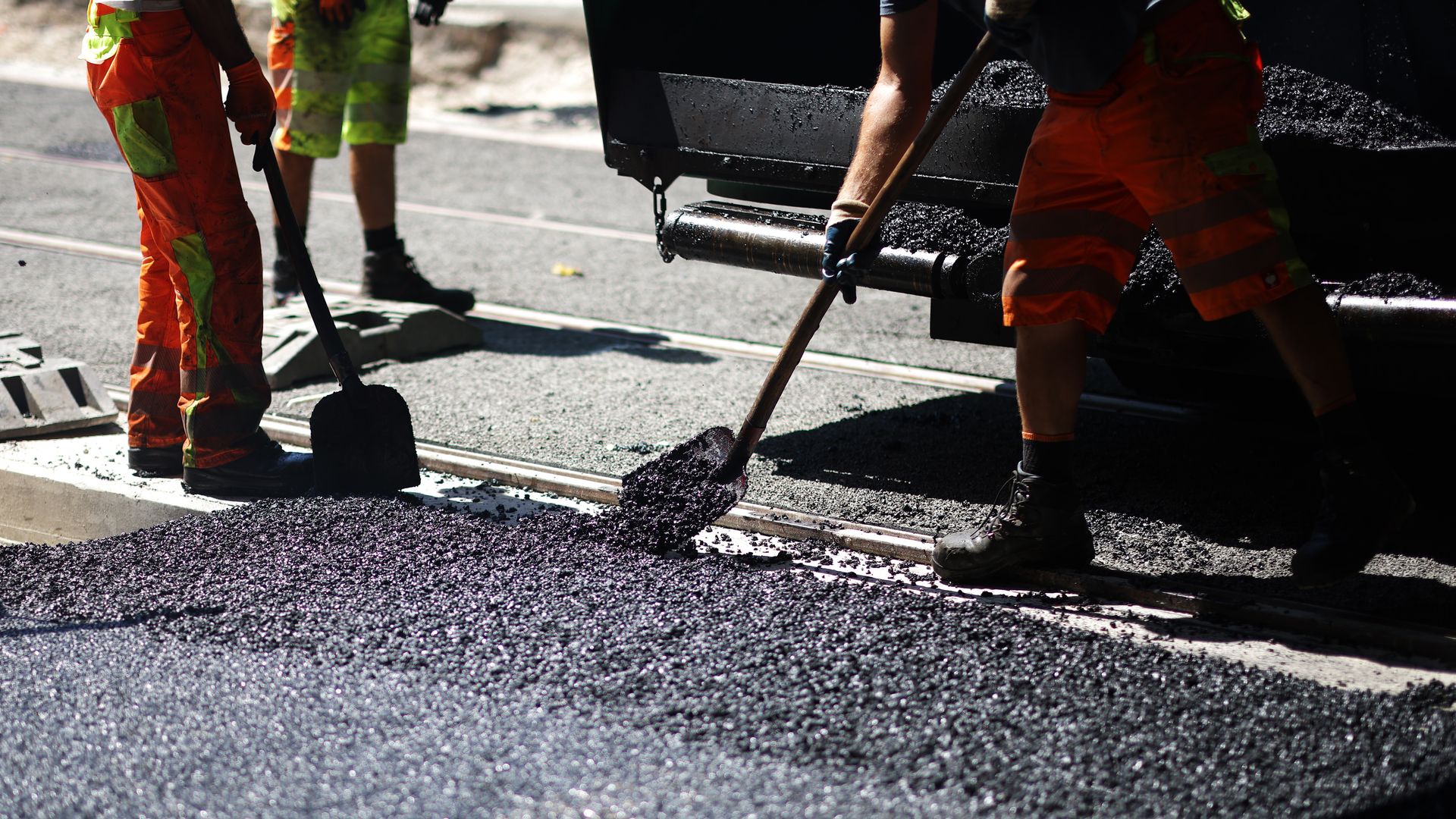Combating climate issues through depaving
Add Axios as your preferred source to
see more of our stories on Google.

Workers lay down asphalt. Photo: Daniel Karmann/dpa via Getty Images
The storms that damaged basements, stranded cars and popped sewer covers into the air last week reminded us that Chicago is not immune to climate-driven weather problems — specifically, heavy storms and floods.
Why it matters: A new organization called Depave Chicago aims to chip away at a major component of our flooding problem — asphalt.
How it works: The group wants to identify underused paved areas that could be broken up to create green spaces like pocket parks, gardens and play areas.
- Instead of sending surface water into overtaxed sewers, these spaces can soak it up while creating shade and moisture to cool urban heat islands.
- One great example is the Waters Elementary School educational garden, which was a huge slab of asphalt until former ecology director Pete Leki led its transformation.
Zoom in: Part of a national network started by Depave Portland, Depave Chicago staffers have been holding listening sessions this summer to understand local needs, ideas and resources.
- The organization says, "only 10% of Chicago is designated as parkland, while climate research suggests that 30-50% of land should be in some form of protected or conserved status."
- They hope to start breaking up asphalt next spring and are calling for proposals on where to begin.
What they're saying: University of Illinois' Mary Pat McGuire runs Water Lab, which works on policy to combat urban flooding.
- "While we’re working at a planning and policy level around making green infrastructure much more the norm in Chicago, we really needed a program that says, ‘Hey, we need to take out some asphalt,'" she told WTTW.
